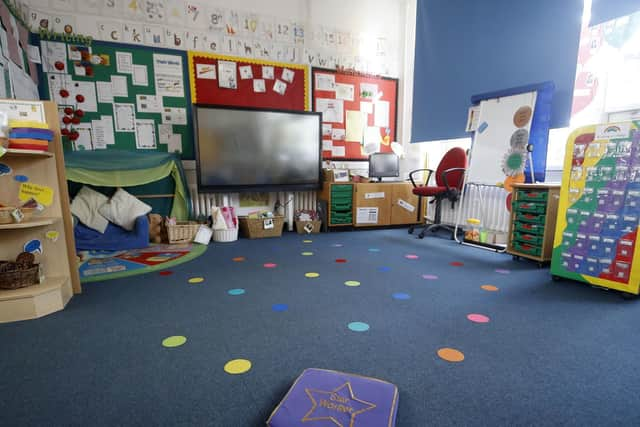New study launched to monitor Covid-19 in schools
and live on Freeview channel 276
Up to 100 schools from across England will be involved in collecting the data. The Department for Education, which is currently approaching schools to participate, wants around 200 pupils and staff members per school to be in the project.
Public Health England’s (PHE) study will add to data on antibody and virus prevalence already being collected through national surveillance programmes and other nationwide studies, which report weekly.
Advertisement
Hide AdAdvertisement
Hide AdResults will be gathered over the summer, with a potential second phase in September.


Health secretary Matt Hancock said: “A critical pillar of our Covid-19 testing strategy is surveillance; testing samples of the population to gain a deeper understanding of the spread of Covid-19, especially in those who may not have symptoms.
“This study will help us better understand how common asymptomatic and mild cases of Covid-19 are so that we can support parents, pupils and teachers and support staff, and inform our ongoing response to this new virus.”
Generally, children have been shown to be asymptomatic. The study will seek to better understand rates of transmission in children and adults within schools over the coming months by swab testing to see if they have the virus.
Advertisement
Hide AdAdvertisement
Hide AdA small proportion of schools will also be offered antibody tests by medical professionals who are fully trained to collect blood samples from patients. Roughly 40 per cent of schools selected for the study will receive antibody and swab tests before the summer holidays.
Participation is on a voluntary basis, and parents and guardians will be asked to provide informed consent for their children or dependents prior to testing.
Dr Shamez Ladhani, paediatric infectious diseases consultant at Public Health England, said: “We are delighted this study is up and running in schools across England. By working with students and staff we’ll be able to better understand infection and transmission of asymptomatic and mild infections of Covid-19 that may have otherwise remained undetected.
“The results of this study will play an important role in informing wider surveillance planned for educational settings in the autumn term.
Advertisement
Hide AdAdvertisement
Hide Ad“Through active surveillance, contact tracing and the close monitoring of any clusters of cases, we are committed to ensuring the safety of students and staff returning to school in the coming weeks and months.”
Education secretary Gavin Williamson said: “We know that being in school is vital for children’s education and their wellbeing.
“Last week, primary schools began to welcome back some pupils and secondary schools will begin to do the same from June 15, as part of our phased and cautious approach to getting children and young people back into the classroom.
“Studies like this will be invaluable as we continue moving forward with those plans, and help us assess the next steps for getting all children back into schools, nurseries and colleges with their friends and teachers.”
Advertisement
Hide AdAdvertisement
Hide AdThe testing procedure involves a swab of the inside of the nose and the back of the throat, using a long cotton bud. Trained paediatric staff will take all blood samples from children, visiting schools to carry out testing.
The antibody test to determine whether someone has had the virus and developed antibodies requires a blood sample.